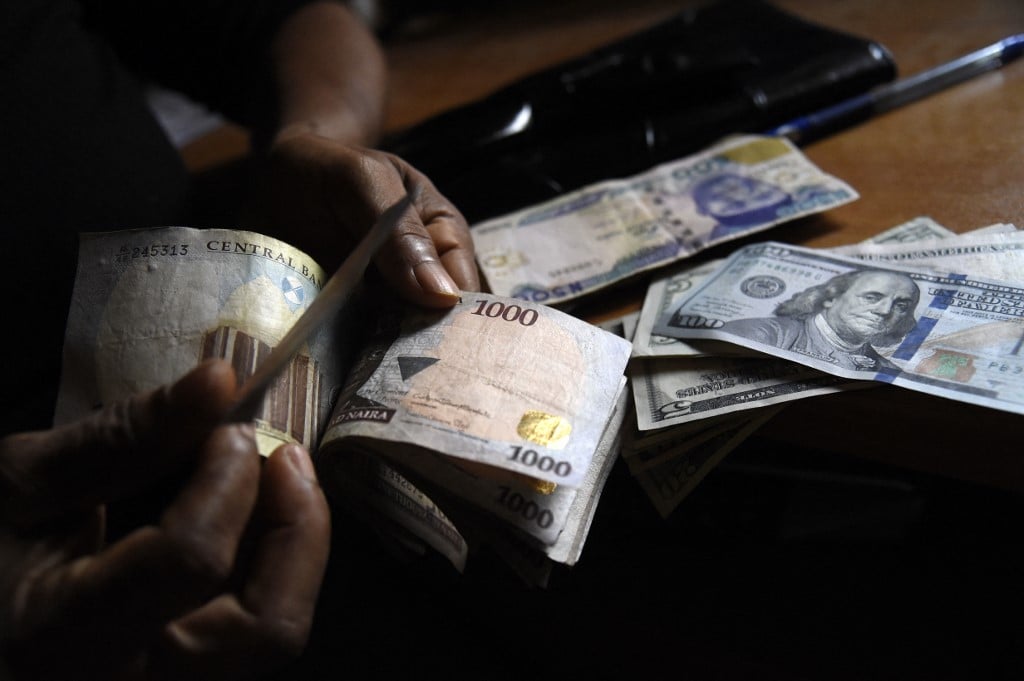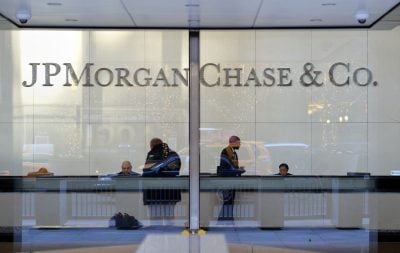At the age of 45, Johnson Mathew, a Lagos-based civil engineer, can count just a few mistakes in his life. One is ignoring a piece of advice by a friend to save part of his income in US dollars.
A year on from that advice, Mathew is filled with regret. He has seen his life savings shrink to almost nothing as a result of the Central Bank of Nigeria (CBN) constantly devaluing the naira, leading to a spike in inflation.
Mathew made another blunder in January when he delayed purchasing building materials for his family house in Ebonyi State, Nigeria.
By early June, when he finally decided to start the building project, the prices of cement, sand, granite, iron rods and other building materials had risen by at least 30% compared to January.
The price increases followed the 25 May devaluation of the naira, from N379/$1 to N410.25/$1. By 12 June, the naira was exchanging at N502/$1 on the parallel market, where the majority of Nigerians purchase their foreign exchange.
The exchange rate volatility, the scarcity of dollars and speculators making a premium from the currency crisis pushed the naira to its current level of depreciation.
Heavy burden for businesses and households
For many businesses and individuals, the naira’s fall has been a heavy burden on their operations and personal lives.
Mary Ozolua, a business woman based in Balogun market in central Lagos, said the prices of goods rose immediately the devaluation was announced. She said many business owners now find it difficult to replenish their stocks as prices have surged.
The naira depreciation makes her operating capital insufficient, while the rise in the price of goods makes it difficult for her to get buyers. “We are fighting two evils: Rising inflation and low purchasing power for the people. Many of my friends have already closed shops to prevent more losses,” she said.
In the aviation sector, airlines, ground handling companies, aircraft maintenance centres and aviation fuel suppliers are committing more naira to source dollars for aircraft spares, aircraft leasing costs, flight crew training, insurance premiums and other obligations.
Ikechukwu Nnamani, president of the Association of Telecoms Companies of Nigeria, said the naira’s devaluation and foreign exchange scarcity have had a devastating impact on the telecoms industry, as most of the equipment used in the sector is purchased in foreign currency.
He said that with the difficulty in accessing dollars, operators sometimes buy them from the parallel market, when the need to purchase the equipment is urgent.
Investigations have shown that since the naira devaluation was announced, many online phone stores, food vendors and fast moving consumer goods outlets have increased their prices. A tuber of yam that sold for N1,500 ($3.63) previously now costs $6.06, with the same degree of price increase seen for rice and onions.
Importers that source raw materials from other countries, and students going to university abroad have all seen the negative impact of the naira devaluation.
Martins Oke, a Nigerian student studying in London, said he is considering a cheaper alternative after he used more naira to buy dollars for his tuition fees abroad. Talking about his experience earlier this year, he said: “Inflation is at 18.12% in April, the exchange rate is largely unstable, and monetary policy has provided inconsistent guidance to the financial community, in particular, and the country in general.”
Squeeze on foreign exchange
But Godwin Emefiele, CBN governor, who never supported naira devaluation at the onset of his leadership, announced that people can now buy dollars to meet their genuine needs.
He had warned of a “devastating” effect of the devaluation of the naira due to Nigeria’s import binge.
Emefiele gave reasons why the naira was devalued. He explained that for Nigeria, an emerging market economy reliant on oil exports, the drop in crude oil earnings and retreat by foreign portfolio investors significantly affected the supply of foreign exchange into the country.
It was the need to adjust for the decrease in supply of foreign exchange that prompted the CBN to devalue the naira.
Emefiele explained that due to the unprecedented nature of the reduced dollar earnings and the shock that came with it, the CBN is committed to a gradual liberalisation of the foreign exchange market in order to smoothen exchange rate volatility and mitigate the impact which rapid changes in the exchange rate could have on key macro-economic variables.
He disclosed that the same foreign exchange management plan is adopted in many other countries where managed float arrangements are in operation, adding that Nigeria is working very hard to improve its non-oil exports and other sources of foreign exchange.
Devaluation is ‘not a good decision’
Many economists have linked the naira crisis to a negative balance of payments in the country.
Okechukwu Unegbu, a Lagos-based stock trader, said the status of the naira and CBN’s action would be determined by the balance of Nigeria’s gains from foreign trade and capital pooled out of the country.
For him, the current capital flow shock and the attendant strain on the foreign reserves account is a temporary problem with no need for permanent action, because naira devaluations are usually irreversible once the conditions that triggered them are corrected.
“Devaluing the naira because of low capital flow today is not a good decision because when the situation improves, the decision is hardly reversed and the damage on businesses would continue to hurt the economy,” he said.
Rise in inflation will damage economy
Muda Yusuf, director-general of the Lagos Chamber of Commerce and Industry, said the naira volatility will continue to determine the state of Nigeria’s economy and businesses.
For him, one of the negative effects is a rise in inflation and subsequent uptick in the cost of production and prices of goods.
Yusuf said: “As the naira exchange [rate] falls, prices of goods and services rise. Inflationary pressures deplete real incomes, reduce the purchasing power of the people, and worsen poverty rates – and those are the challenges facing the country today. A stumbling economy and rising inflation are at the centre of Nigeria’s economic challenges,” he stated.
However, he added that the positive side of the currency predicament is that a weak currency makes exports competitive and provides a significant boost for export growth and more dollar-earning.
Aminu Gwadabe, president of the Association of Bureaux De Change Operators of Nigeria, linked the naira crisis to currency speculators taking advantage of the crisis to manipulate exchange rates. He said the solution is to make dollars available at the retail end of the market to ensure that people can buy dollars at the CBN-approved rates.
Can oil revenues turn round balance of trade?
Bismarck Rewane, managing director of Financial Derivatives Company Ltd, said Nigeria had enjoyed a balance of trade surplus until recently.
“In recent times with the oil price crashing, Nigeria had started running a balance of trade deficit. The deficit increased by 1,094.2% to $9.61bn in the first quarter of 2021, from $804.71m in the first quarter of 2020, and that affected the available dollars in the economy and subsequently led to devaluation of the naira,” he added.
In his view, the recent spike in oil prices has raised hopes for a return to the trade surplus era for Nigeria. “This is why the surprise swing of first quarter merchandise trade to a deficit of $9.61bn caught the market napping. Analysts are still optimistic and project that the balance of trade will swing into a surplus of $3.6bn in 2022. Nigeria’s import bill is currently $63.8bn.”
He predicted that the first quarter deficit of $9.61bn will be more than compensated by the higher oil price, currently at $80pb.
Rewane said trade deficits are usually funded by a combination of export earnings, external reserves and foreign loans. This could further increase Nigeria’s external debt stock to $45bn.
Want to continue reading? Subscribe today.
You've read all your free articles for this month! Subscribe now to enjoy full access to our content.
Digital Monthly
£8.00 / month
Receive full unlimited access to our articles, opinions, podcasts and more.
Digital Yearly
£70.00 / year
Our best value offer - save £26 and gain access to all of our digital content for an entire year!
 Sign in with Google
Sign in with Google 



